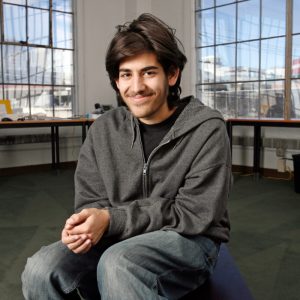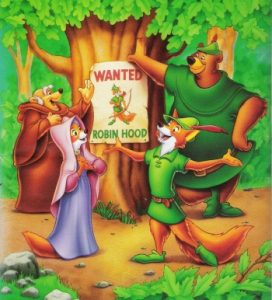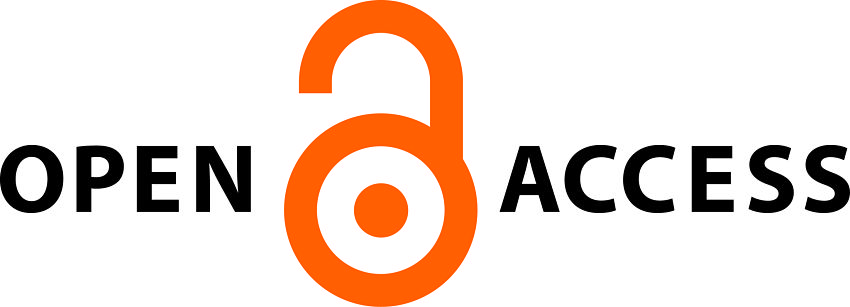“Those who do not move, do not notice their chains.”
-Rosa Luxemburg
As we enter Open Access Week I thought it would be interesting to revisit an idea presented by Aaron Swartz in July of 2008.
Swartz was an American computer programmer, entrepreneur, writer, political organizer, and Internet hacktivist (source). At age 16 he played a role in the creation of Creative Commons and at age 20 he helped develop Reddit. Needless to say, he was extremely intelligent, a forward thinker, and ahead of his time.
Yet to some, he was also considered a criminal.

In a very black and white sense of the word, yes, you could make that argument and you wouldn’t be wrong. If you step back and consider it though, Swartz could be seen as a modern-day Robin Hood; steal from the rich to give to the poor. In Swartz’s case, the rich are major academic vendors and institutions, and the poor are everyone who is unable to access information.
In late 2010 and early 2011, Swartz was a research fellow at Harvard University. As a research fellow that meant Swartz had access to a JSTOR account. On September 25, 2010, there was suspicious activity coming from the IP Address 18.55.6.215. This IP address was part of the MIT network and began sending a large number of PDF download requests per minute to JSTOR. This was affecting the stability of the entire JSTOR site.
This was Swartz, and he was arrested on January 6, 2011, by Harvard campus security and a U.S. Secret Service agent. His charges? Breaking and entering with an intent to commit a felony.
After various federal charges were added and dropped against Swartz, he ended up committing suicide on January 11, 2013, at the age of 26. After his death, federal prosecutors dropped the charges.
What Swartz was doing, was taking part in Guerrilla Open Access (source). This was a short paper he wrote in July of 2008 in Eremo, Italy while attending a meeting about the future of the library (source).
According to Swartz, Guerrilla Open Access means taking information, wherever it is stored, making copies and sharing those copies with the world. It includes taking stuff that’s out of copyright and adding it to the archive. Swartz goes so far as to say we need to buy secret databases and put those copies on the Web (look at Sci-Hub). We need to download scientific journals and upload them to file-sharing networks. In the end, Swartz argues that “[w]e need to fight for Guerrilla Open Access”.
What is Guerrilla Open Access?
Yes, Swartz’s stance on Guerrilla Open Access is illegal, it violates many of the licence agreements that vendors and publishers have on their products. Yet, this speaks to an even greater issue of access to information. In that same manifesto, Swartz argues that great strides have been made to educate researchers saying that the Open Access Movement has “faught [sic] valiantly to ensure that scientists do not sign their copyrights away but instead ensure their work is published on the Internet, under terms that allow anyone to access it”. Swartz also suggests that even with these strides in open access, this will only apply to things published in the future, “[e]verything up until now will have been lost”.

Swartz personified a modern day Robin Hood. He was an activist for social change and he put his money where his mouth was. In the end, however, the weight of the legal system took its toll and we lost one of the most prolific activists of the modern age.
One of my favourite passages from Swartz’ Guerrilla Open Access Manifesto is as follows, “There is no justice in following unjust laws. It’s time to come into the light and, in the grand tradition of civil disobedience, declare our opposition to this private theft of public culture”. Whether you agree with Guerrilla Open Access or not, it is certainly difficult to read this passage and not feel a strong sense of moral obligation to fight for more equality in societies access to information.
In the end, I leave you with a final question…
Was Robin Hood a hero? or was he a villain?
Audio Version
Recently I have been fiddling with audio production and recorded Swartz’s Guerilla Open Access Manifesto. Feel free to have a listen…
Disclaimer
My views are my own and do not reflect those of my employer.
Resources
The Boy Who Could Change the World

